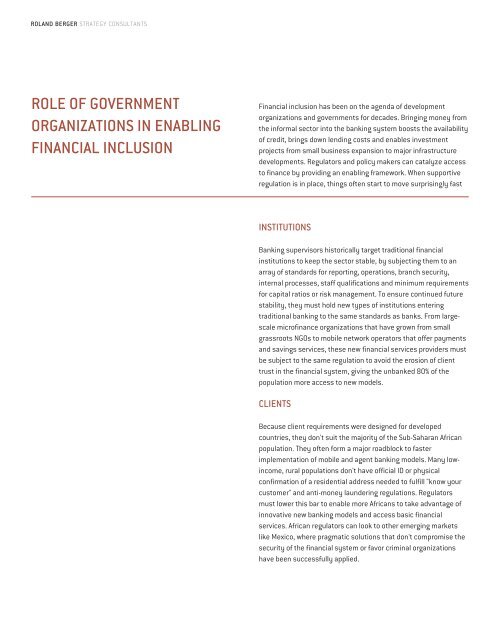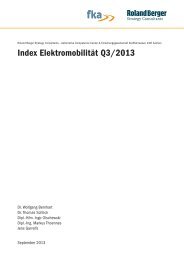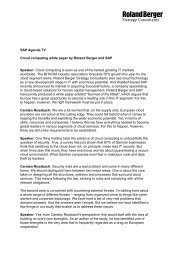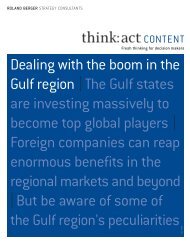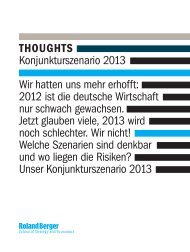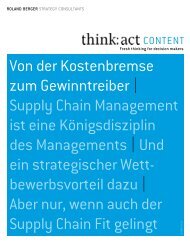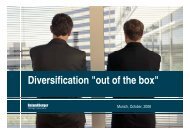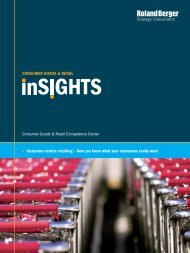think: act STUDY "Inside Africa" - Roland Berger
think: act STUDY "Inside Africa" - Roland Berger
think: act STUDY "Inside Africa" - Roland Berger
You also want an ePaper? Increase the reach of your titles
YUMPU automatically turns print PDFs into web optimized ePapers that Google loves.
<strong>Roland</strong> <strong>Berger</strong> Strategy Consultants<br />
Role of government<br />
organizations in enabling<br />
financial inclusion<br />
Financial inclusion has been on the agenda of development<br />
organizations and governments for decades. Bringing money from<br />
the informal sector into the banking system boosts the availability<br />
of credit, brings down lending costs and enables investment<br />
projects from small business expansion to major infrastructure<br />
developments. Regulators and policy makers can catalyze access<br />
to finance by providing an enabling framework. When supportive<br />
regulation is in place, things often start to move surprisingly fast<br />
Institutions<br />
Banking supervisors historically target traditional financial<br />
institutions to keep the sector stable, by subjecting them to an<br />
array of standards for reporting, operations, branch security,<br />
internal processes, staff qualifications and minimum requirements<br />
for capital ratios or risk management. To ensure continued future<br />
stability, they must hold new types of institutions entering<br />
traditional banking to the same standards as banks. From largescale<br />
microfinance organizations that have grown from small<br />
grassroots NGOs to mobile network operators that offer payments<br />
and savings services, these new financial services providers must<br />
be subject to the same regulation to avoid the erosion of client<br />
trust in the financial system, giving the unbanked 80% of the<br />
population more access to new models.<br />
Clients<br />
Because client requirements were designed for developed<br />
countries, they don't suit the majority of the Sub-Saharan African<br />
population. They often form a major roadblock to faster<br />
implementation of mobile and agent banking models. Many lowincome,<br />
rural populations don't have official ID or physical<br />
confirmation of a residential address needed to fulfill "know your<br />
customer" and anti-money laundering regulations. Regulators<br />
must lower this bar to enable more Africans to take advantage of<br />
innovative new banking models and access basic financial<br />
services. African regulators can look to other emerging markets<br />
like Mexico, where pragmatic solutions that don't compromise the<br />
security of the financial system or favor criminal organizations<br />
have been successfully applied.


